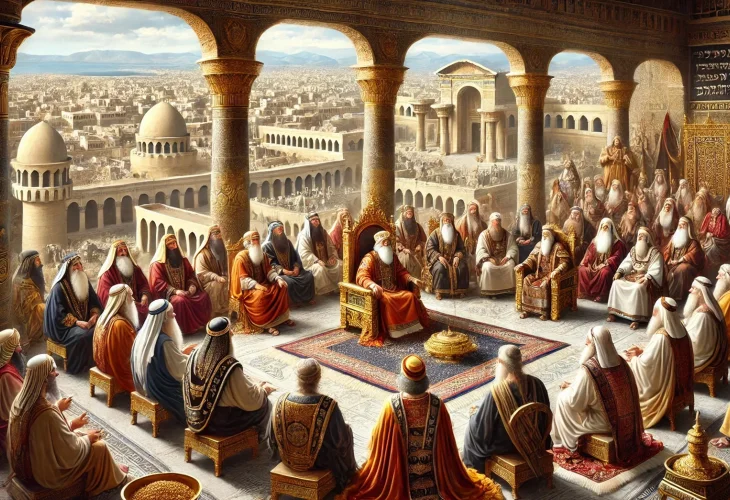The Greek Translation of the Torah: A Monumental Moment or a Calamity?
While the elevation of the Jewish people's status following the translation and the gentiles' newfound appreciation for the Torah's teachings might seem like a cause for joy, the sages felt otherwise.

The translation of the Torah into Greek, known as the Septuagint, led to increased respect for Jews in Egypt. Ptolemy ordered that the translated Torah be kept revered in his library. He frequently invited the seventy elders to his palace to learn from their wisdom. In return, he showered them and the High Priest in Jerusalem with precious gifts. In Alexandria, a significant Jewish community emerged from the thousands of slaves Ptolemy freed and others who joined them, leading to the establishment of the world's largest synagogue.
Throughout the Hellenistic world, respect for Jewish laws grew. Seleucus Nicator, ruling from Syria to India, granted Jews citizen rights similar to those of Greeks in his cities. Since Jews avoided gentile oil, they were given allocations of kosher oil, a right honored for centuries, even by the Romans. During Marcus Agrippa's era, a Greek delegation questioned this privilege, arguing that if Jews were esteemed like Greeks, they should worship similarly. A prominent historian from Damascus, Nicolaus, defended the Jews, highlighting the antiquity of Jewish tradition in his extensive historical works. The law remained unchanged.
Theophrastus, Aristotle’s pupil, dubbed Jews as "philosophers among the Syrians." Another student of Aristotle, Clearchus, recounted a meeting between Aristotle and a Jewish scholar who impressed Aristotle with deep philosophical insights and moral teachings. This individual was noted for his self-control, attributed to Jewish education. Aristotle allegedly referred to Judea as a state of philosophers. Greek writer Hermippos, in his book on lawmakers, suggested Pythagoras drew upon Jewish philosophy. Other writers of the Ptolemaic era, Hecataeus of Abdera and Megasthenes, acknowledged the profound and abstract nature of Jewish beliefs.
Despite this, the Jewish sages likened the day of the translation to the day of the golden calf, declaring it a fast day. Darkness overshadowed the world for three days, marking "the eighth of Tevet when the Torah was translated in the era of King Ptolemy" (Seder Olam Rabbah).
Why such a reaction? The sages believed that "the Torah could not be fully translated." In Hebrew, the divine language in which the Torah was given by Hashem, every letter and mark holds deep meaning. The Greek translation could not capture these nuances. Despite being primarily in Hebrew, a Greek copy resided in Ptolemy's library. Where was the catastrophe? It seemed to uplift the Jewish standing.
Answers will be explored in subsequent chapters.

